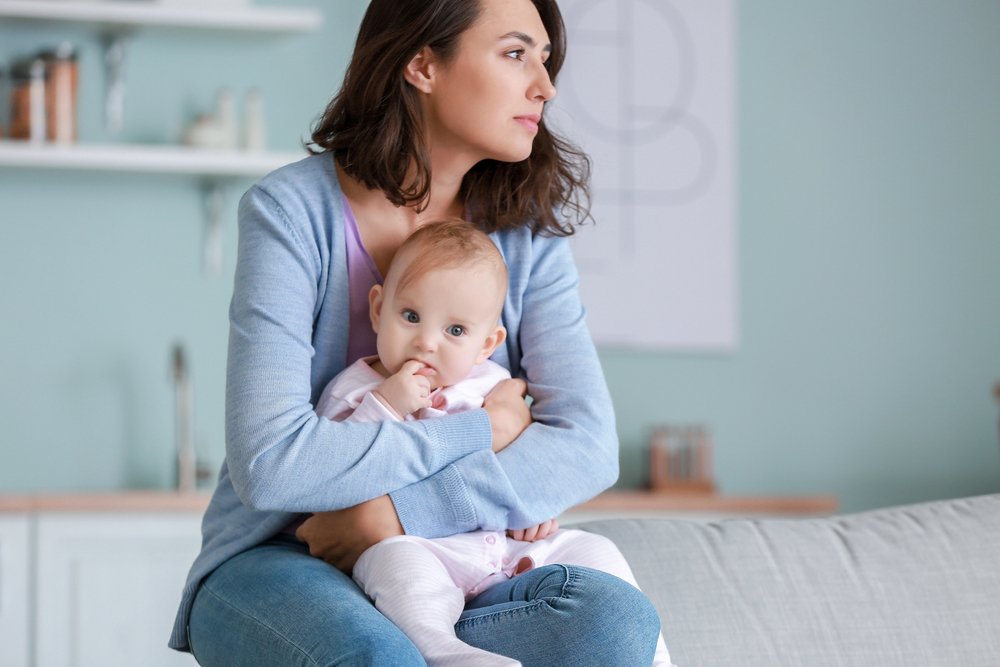Read the latest and greatest from our team
of incredible specialists.

Beach House Recovery Center » Blog » Postpartum Psychosis Explained
Psychosis is a condition that causes delusional thinking, irrational judgment and hallucinations. While mental health issues like schizophrenia can cause psychosis, some women can experience a break from reality after giving birth.

Though it’s typical for mothers of newborns to experience emotional highs and lows, postpartum psychosis is different from the “baby blues.” It’s a severe mental illness that makes daily life difficult, and it requires emergency intervention and treatment from health care professionals. During a psychotic episode, you may have strange, unreasonable ideas or think about hurting your baby or yourself.
Some women who develop postpartum psychosis have a family or personal history of mental health disorders like bipolar disorder or schizophrenia. However, most have no record of psychiatric problems.
Postpartum psychosis may emerge without warning shortly after giving birth. Symptoms can include:
Doctors think the series of hormonal changes that happens after pregnancy may be the cause of postpartum psychosis and similar conditions called postpartum depression and postpartum anxiety. Your risks may increase if this baby was your first, you had an unplanned pregnancy or you had dramatic shifts in your mood and behavior while pregnant.
If you suddenly become detached from reality, you might not realize you are having a psychotic break. That’s why your partner, friends and family members must understand the red flags of postpartum mental health conditions.
During the critical early days of recovering from childbirth, ask people you trust to keep a close watch on you and your baby. They can call 911 or your doctor for help if they notice warning signs of postpartum psychosis or believe you are in any danger of harming yourself or your child.
Because psychosis involves delusions and clouded judgment, a doctor might start by hospitalizing you for your safety. After evaluating your medical and psychiatric history, a physician can complete various physical and neurological screenings to rule out the presence of other illnesses that may be causing your symptoms. They could also put you on a regimen of a calming medication such as lithium. With patience and a successful treatment plan, you can recover from postpartum psychosis and be there to provide your baby with plenty of love and attention.
Becoming a new parent or adding to your family is a considerable responsibility, and it’s natural to experience anxiety and self-doubt. However, if you find yourself struggling to take good care of yourself or your newborn baby, it’s time to seek help.
At Beach House, we are proud to be one of the nation’s leading treatment programs. Since 2016, we’ve worked to create a safe, caring environment where you can get evidence-based mental health and substance abuse treatment in our dual-diagnosis program. To learn more about how we can equip you to lead a healthier, more fulfilling life, call our admissions counselors to request confidential help.
Whether you’re researching for yourself or a loved one, Beach House can help. We understand that this is a serious time in your life and that the treatment center you choose matters. We want you to feel comfortable and empowered to make the right decision for yourself, a friend, or a family member. This is why a counselor is waiting and available to answer your questions and help put your mind at ease regarding the next steps. Many of the staff at Beach House have walked in your shoes. If you feel you’re ready or want more information about how to help a loved one, we can help today. You can also learn why we are voted the #1 rehab for addiction treatment in Florida.
We accept most major insurance plans and can verify your benefits quickly and confidentially.
We’re committed to helping you access the care you need, our admissions counselors can guide you through your coverage options and available resources.





"*" indicates required fields